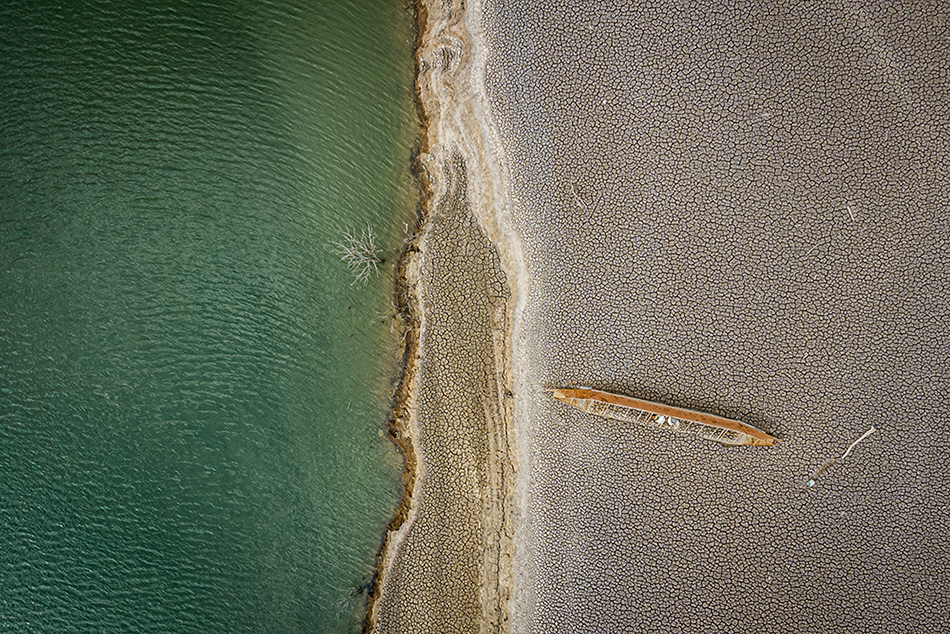
What we’re calling the “cost-of-living crisis” contains something far more sinister. The surge in prices over the past 18 months has been largely due to the aftershocks of Covid-19 and Russia’s invasion of Ukraine. Both pushed up the cost of energy and – because Russia and Ukraine are two of the world’s largest agricultural exporters – the war also inflated food prices.
But, increasingly, what we are seeing is the impact of climate change. We are experiencing this most directly as higher prices, though actual shortages are also occurring. We are being forced to adapt, chaotically, to a world undergoing severe ecological stress. This is not a cost-of-living crisis but a cost-of-adaptation crisis.
Spain, for instance, is currently suffering a drought affecting 60 per cent of the country – so bad that, as Nasa satellite photos have shown, it’s visible from space. One immediate result is that olive harvests across the Iberian peninsula have been ruined, triggering shortages and driving olive oil prices up to a 26-year high. But it’s not just olives: Spain supplies around a quarter of the fresh produce we eat in the UK.
Drought conditions are hitting North Africa hard too. The EU Monitoring Agricultural Resources unit has warned that the region is importing record quantities of wheat. The prices of certain types of coffee, meanwhile, have surged to a 15-year high as heavy rains damage harvests in Indonesia. Food prices should ease a little over the next few months. But rising temperatures and extreme weather events are increasingly disruptive of the food systems we depend upon – and neither are going away.
These crises of production leave the conventional tools of economic management redundant. The attempt by the Bank of England to restrain inflation via interest rate rises would be farcical if it wasn’t so destructive. Its economists are working with models designed for calmer times, when inflation occurs because the economy is doing too well – when there is too much spending and so demand has to be drawn out of the system via interest rate rises. This doesn’t fit the current situation, in which real incomes are plummeting, growth is anaemic and the inflationary shocks are externally driven.
But those shocks are then amplified by our domestic economy. What has become known as “greedflation” comes from the simple (but accurate) observation that as the price of essentials has surged, at least some companies, able to command market power over their supply, have done extremely well. The profits of the fossil fuel giants became notorious last year. But the four largest global agribusinesses have seen their profits increase by 255 per cent since the pandemic. More detailed research from the FT shows that profit margins on staples such as a pint of milk are at a 30-year high in the UK. As in wartime, disruptions and shortages provide the ideal conditions for profiteering.
Tepid suggestions from the government that it is considering a purely voluntary scheme to reign in supermarket prices provoked howls of outrage from zombie neoliberals. But if the cost-of-adaptation crisis worsens – and we should expect it to – the measures required are likely to go far beyond the free-market norms of the last 40 years.
New lines of political confrontation are already opening up around the core questions of food and land. Dutch farmers have been protesting for months over government plans to reduce their nitrogen emissions. Huge protests have taken place in France over the construction of vast new reservoirs, built to support big agribusinesses at the expense of smaller farmers. Protests over access to land are spreading in Britain, along with demands to create a “right to food”. As the adaptation crisis worsens, we should expect to be confronted with starker choices: about how we grow what we eat, who grows it, and how it should be fairly distributed.
[See also: Are sanctions on Russia working?]



